中西方文化的比较Comparison between Confucius and Socrates
- 格式:pptx
- 大小:1.09 MB
- 文档页数:19
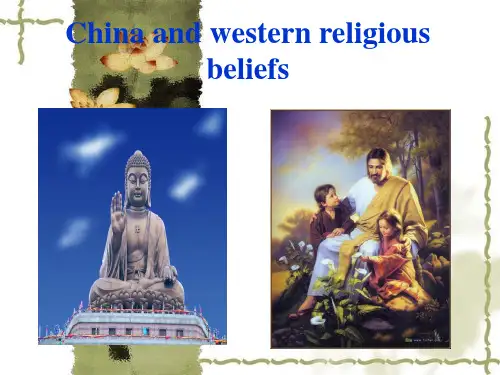
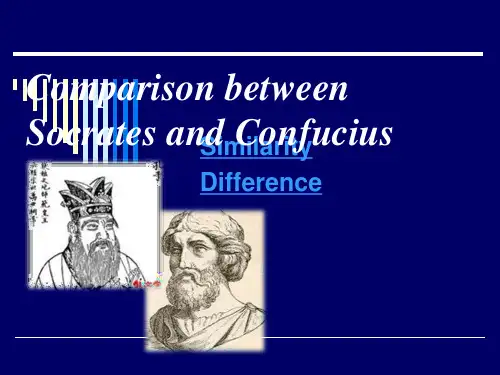
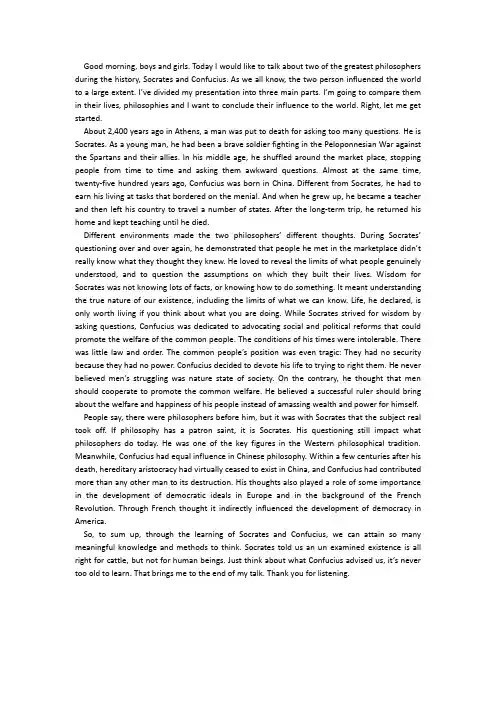
Good morning, boys and girls. Today I would like to talk about two of the greatest philosophers during the history, Socrates and Confucius. As we all know, the two person influenced the world to a large extent. I’ve divided my presentation into three main parts. I’m going to compare them in their lives, philosophies and I want to conclude their influence to the world. Right, let me get started.About 2,400 years ago in Athens, a man was put to death for asking too many questions. He is Socrates. As a young man, he had been a brave soldier fighting in the Peloponnesian War against the Spartans and their allies. In his middle age, he shuffled around the market place, stopping people from time to time and asking them awkward questions. Almost at the same time, twenty-five hundred years ago, Confucius was born in China. Different from Socrates, he had to earn his living at tasks that bordered on the menial. And when he grew up, he became a teacher and then left his country to travel a number of states. After the long-term trip, he returned his home and kept teaching until he died.Different environments made the two philosophers’ different thoughts. During Socrates’ questioning over and over again, he demonstrated that people he met in the marketplace didn’t really know what they thought they knew. He loved to reveal the limits of what people genuinely understood, and to question the assumptions on which they built their lives. Wisdom for Socrates was not knowing lots of facts, or knowing how to do something. It meant understanding the true nature of our existence, including the limits of what we can know. Life, he declared, is only worth living if you think about what you are doing. While Socrates strived for wisdom by asking questions, Confucius was dedicated to advocating social and political reforms that could promote the welfare of the common people. The conditions of his times were intolerable. There was little law and order. The common people’s position was even tragic: They had no security because they had no power. Confucius decided to devote his life to trying to right them. He never believed men’s struggling was nature state of society. On the contrary, he thought that men should cooperate to promote the common welfare. He believed a successful ruler should bring about the welfare and happiness of his people instead of amassing wealth and power for himself. People say, there were philosophers before him, but it was with Socrates that the subject real took off. If philosophy has a patron saint, it is Socrates. His questioning still impact what philosophers do today. He was one of the key figures in the Western philosophical tradition. Meanwhile, Confucius had equal influence in Chinese philosophy. Within a few centuries after his death, hereditary aristocracy had virtually ceased to exist in China, and Confucius had contributed more than any other man to its destruction. His thoughts also played a role of some importance in the development of democratic ideals in Europe and in the background of the French Revolution. Through French thought it indirectly influenced the development of democracy in America.So, to sum up, through the learning of Socrates and Confucius, we can attain so many meaningful knowledge and methods to think. Socrates told us an un examined existence is all right for cattle, but not for human beings. Just think about what Confucius advised us, it’s never too old to learn. That brings me to the end of my talk. Thank you for listening.。
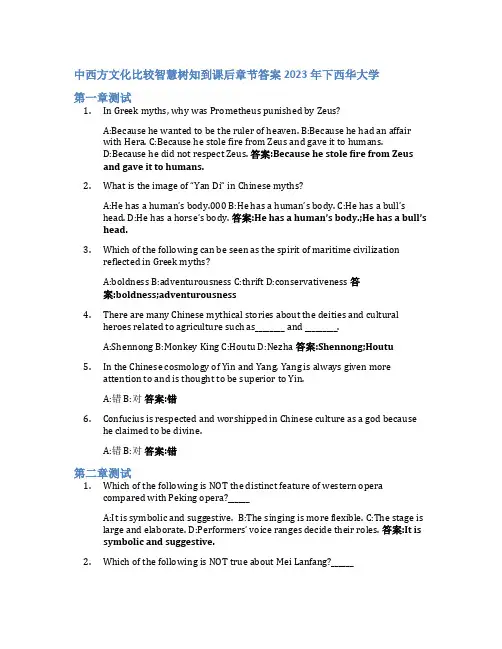
中西方文化比较智慧树知到课后章节答案2023年下西华大学第一章测试1.In Greek myths, why was Prometheus punished by Zeus?A:Because he wanted to be the ruler of heaven. B:Because he had an affairwith Hera. C:Because he stole fire from Zeus and gave it to humans.D:Because he did not respect Zeus. 答案:Because he stole fire from Zeusand gave it to humans.2.What is the image of “Yan Di” in Chinese myths?A:He has a human’s body.000 B:He has a human’s body. C:He has a bull’shead. D:He has a horse’s body. 答案:He has a h uman’s body.;He has a bull’s head.3.Which of the following can be seen as the spirit of maritime civilizationreflected in Greek myths?A:boldness B:adventurousness C:thrift D:conservativeness 答案:boldness;adventurousness4.There are many Chinese mythical stories about the deities and culturalheroes related to agriculture such as________ and _________.A:Shennong B:Monkey King C:Houtu D:Nezha 答案:Shennong;Houtu5.In the Chinese cosmology of Yin and Yang, Yang is always given moreattention to and is thought to be superior to Yin.A:错 B:对答案:错6.Confucius is respected and worshipped in Chinese culture as a god becausehe claimed to be divine.A:错 B:对答案:错第二章测试1.Which of the following is NOT the distinct feature of western operacompared with Peking opera?______A:It is symbolic and suggestive. B:The singing is more flexible. C:The stage is large and elaborate. D:Performers’ voice ranges decide their roles. 答案:It is symbolic and suggestive.2.Which of the following is NOT true about Mei Lanfang?______A:He composed many new melodies. B:He created various dances. C:He made innovations to the facial makeup, hairstyles and costumes. D:He wrote some plays for Peking opera. 答案:He wrote some plays for Peking opera.3.The features of Gothic architecture could be mirrored in Gothiccostume,including______.A:pointed sleeves B:pointed shoes C:stiff-bodiced dresses D:high headdresses 答案:pointed sleeves;pointed shoes;high headdresses4.Ancient Chinese architecture features timber framework has severaladvantages, including______.A:vulnerable to fire B:time-consuming C:windows and doors would not berestricted D:resistant to earthquakes 答案:windows and doors would notbe restricted;resistant to earthquakes5.Ancient Chinese buildings enjoy external appearance while westernbuildings attach importance to internal richness.A:错 B:对答案:错pared with traditional Chinese costumes, the rules on colors of westerncostumes are less strict and obvious.A:对 B:错答案:对第三章测试1.Chinesse poetry is good at using( ) to display imagery.A:implication B:blank space C:brush D:euphemism 答案:blank space2.Poetry is closely related to ( ).A:syntax B:diction C:stanza D:music 答案:music3.According to Aristotle, the function of tragedy can be concluded as ( ).A:ecstasy B:elevation C:repugnant D:catharsis 答案:catharsis4.Three main subjects in western fiction are about fantasy, ( )and( ).A:adventure B:death C:war D:love E:religion 答案:adventure;religion5.The Dream of Red Mansions is a typical history romance.A:错 B:对答案:错6.Chinese Peking opera usually uses symbolic performance on stage.A:对 B:错答案:对第四章测试1.What does "吃" mean in Chinese expression "吃不准"?A:to suffer B:to eat C:to understand D:to get 答案:to understand2.Which of the following statement is NOT true about eating in the west?A:Do not make slurping noises while sipping from a spoon. B:Always sip from the tip rather than the side of the spoon. C:Always sip from the side of thespoon rather than the tip. D:Do not make harsh noise by touching plates orcups with utensils. 答案:Always sip from the tip rather than the side ofthe spoon.3.Which of the following names does not belong to the praising type?A:燕窝福字什锦鸡丝 B:翡翠虾球 C:江山万代 D:龙凤呈祥答案:翡翠虾球4.Which of the following are the factors contributing to the development ofagricultural culture in China?A:human’s desire B:rich landforms C:oceanical environment D:favorableclimates E:continental movement 答案:rich landforms;favorable climates 5.There is no common point between Buddhism and Christianity.A:对 B:错答案:错6.As to fry, there are more kinds of subclassification in Chinese cooking than inthe western counterpart.A:对 B:错答案:对。
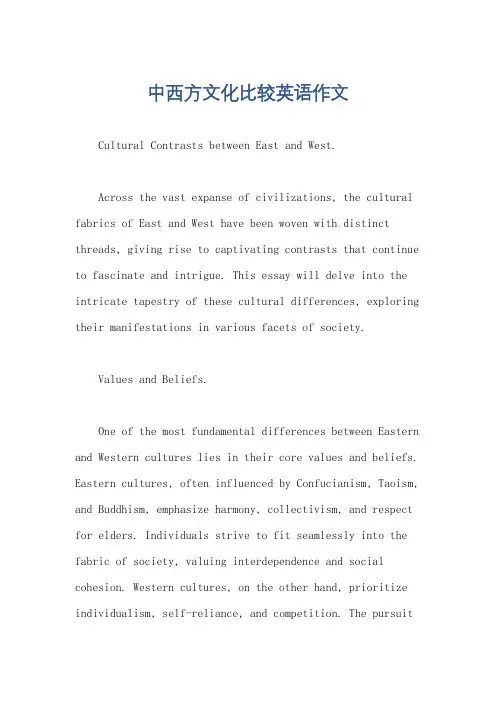
中西方文化比较英语作文Cultural Contrasts between East and West.Across the vast expanse of civilizations, the cultural fabrics of East and West have been woven with distinct threads, giving rise to captivating contrasts that continue to fascinate and intrigue. This essay will delve into the intricate tapestry of these cultural differences, exploring their manifestations in various facets of society.Values and Beliefs.One of the most fundamental differences between Eastern and Western cultures lies in their core values and beliefs. Eastern cultures, often influenced by Confucianism, Taoism, and Buddhism, emphasize harmony, collectivism, and respect for elders. Individuals strive to fit seamlessly into the fabric of society, valuing interdependence and social cohesion. Western cultures, on the other hand, prioritize individualism, self-reliance, and competition. The pursuitof personal success and self-actualization holds paramount importance.Communication Styles.The diverse cultural backgrounds of East and West have shaped contrasting communication styles. In Eastern cultures, communication tends to be indirect, nuanced, and context-dependent. Speakers often rely on subtle cues, gestures, and unspoken understandings. Western cultures, in contrast, favor direct and explicit communication. Speakers aim to convey their thoughts and ideas clearly and concisely, leaving little room for interpretation.Perception of Time.The perception of time reflects a profound cultural divide. Eastern cultures often view time as cyclical and fluid. Past, present, and future are interconnected, with the present being a transient moment within the grander scheme of existence. Western cultures, however, tend to perceive time as linear and irreversible. Time is seen as aprecious commodity that must be managed and utilized efficiently.Approaches to Education.Educational systems in the East and West differ significantly in their objectives and methodologies. Eastern education traditionally focuses on rote memorization, respect for authority, and the transmission of cultural traditions. Students are expected to conform to established norms and hierarchies. Western education, on the other hand, emphasizes critical thinking, creativity, and the development of individual potential. Students are encouraged to question, experiment, and explore new ideas.Social Stratification.Social stratification systems also exhibit contrasting patterns between East and West. Eastern cultures often maintain a hierarchical structure, with individuals assigned to specific social classes based on factors such as family background, social status, and economic wealth.Western cultures, while still exhibiting some degree of social stratification, have generally embraced greater social mobility and equality.Role of Religion.Religion plays a pivotal role in shaping cultural values and practices. In Eastern cultures, religions such as Buddhism, Confucianism, and Taoism have deeply influenced ethical systems, social norms, and artistic expressions. Western cultures, on the other hand, have been marked by a separation between church and state. While Christianity has been a major force in shaping Western values, its influence has declined in recent decades.Conclusion.The cultural tapestry of East and West is intricately woven with unique threads that create a vibrant and diverse world. The contrasts between these regions manifest themselves in a wide range of aspects, from values and beliefs to communication styles, perception of time,educational approaches, social stratification, and the role of religion. By understanding and appreciating these differences, we can foster cross-cultural dialogue, promote tolerance, and enrich our global society.。
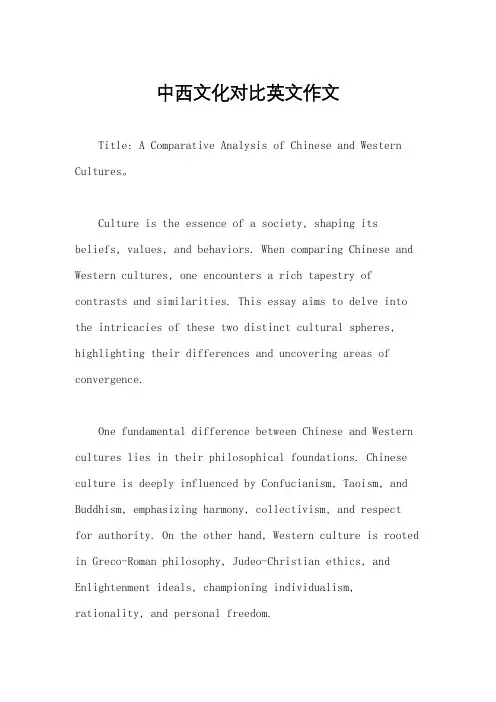
中西文化对比英文作文Title: A Comparative Analysis of Chinese and Western Cultures。
Culture is the essence of a society, shaping its beliefs, values, and behaviors. When comparing Chinese and Western cultures, one encounters a rich tapestry of contrasts and similarities. This essay aims to delve into the intricacies of these two distinct cultural spheres, highlighting their differences and uncovering areas of convergence.One fundamental difference between Chinese and Western cultures lies in their philosophical foundations. Chinese culture is deeply influenced by Confucianism, Taoism, and Buddhism, emphasizing harmony, collectivism, and respectfor authority. On the other hand, Western culture is rooted in Greco-Roman philosophy, Judeo-Christian ethics, and Enlightenment ideals, championing individualism, rationality, and personal freedom.Language is another pivotal aspect that distinguishes Chinese and Western cultures. Chinese, with its intricate characters and tonal variations, reflects the cultural reverence for tradition and symbolism. In contrast, Western languages like English, with their alphabetic scripts and diverse linguistic origins, mirror the dynamic and pragmatic nature of Western societies.Social organization and etiquette also differ significantly between Chinese and Western cultures. In China, hierarchical relationships and social harmony are paramount, manifesting in elaborate protocols for addressing and interacting with others. Conversely, Western societies tend to prioritize egalitarianism and direct communication, often valuing individual expression over conformity to social norms.Cuisine provides yet another lens through which to examine cultural differences. Chinese cuisine, with its emphasis on balance, texture, and symbolism, reflects the holistic approach to health and well-being ingrained inChinese culture. In contrast, Western cuisine, characterized by diverse flavors and culinary experimentation, embodies the spirit of exploration and innovation prevalent in Western societies.Religious beliefs and practices also vary between Chinese and Western cultures. While China has a rich tapestry of religious traditions, including Buddhism, Taoism, and Confucianism, it also exhibits a secular outlook shaped by decades of Communist rule. In contrast, Western societies are predominantly Christian, with diverse denominations and varying degrees of religious observance.Art and aesthetics offer yet another fascinating arena for cultural comparison. Chinese art, with its emphasis on symbolism, harmony, and nature, reflects the philosophical underpinnings of Chinese culture. Western art, characterized by realism, individual expression, and innovation, embodies the spirit of creativity and exploration that defines Western societies.Education is yet another realm where Chinese andWestern cultures diverge. In China, education is highly valued and seen as a means to upward social mobility, leading to intense competition and emphasis on rote memorization. In contrast, Western education systems prioritize critical thinking, creativity, and holistic development, aiming to nurture well-rounded individuals capable of adapting to an ever-changing world.Despite these differences, Chinese and Western cultures also share commonalities and points of convergence. Both value family and community, albeit expressing it in different ways. Both appreciate art, literature, and music as vehicles for self-expression and cultural enrichment. Moreover, globalization and intercultural exchange have led to increasing hybridization and mutual influence between Chinese and Western cultures, blurring the lines and creating new cultural forms and expressions.In conclusion, the comparison between Chinese and Western cultures reveals a complex interplay of differences and similarities, each enriching the global tapestry of human civilization. By appreciating and understanding thesecultural nuances, we can foster greater cross-cultural understanding and collaboration in an increasingly interconnected world.。
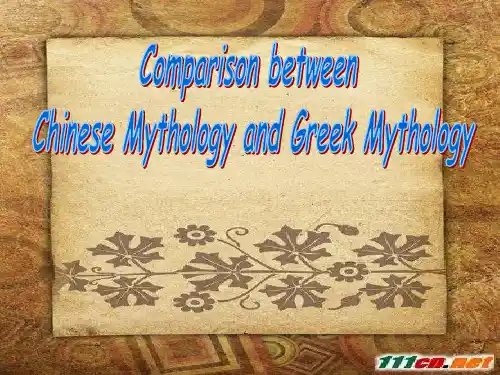
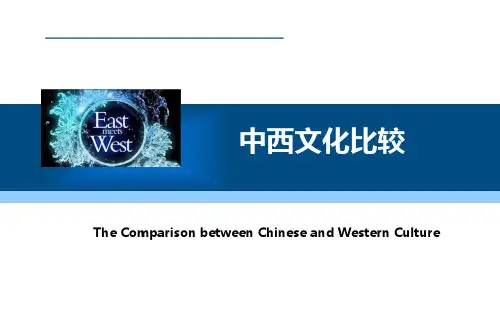
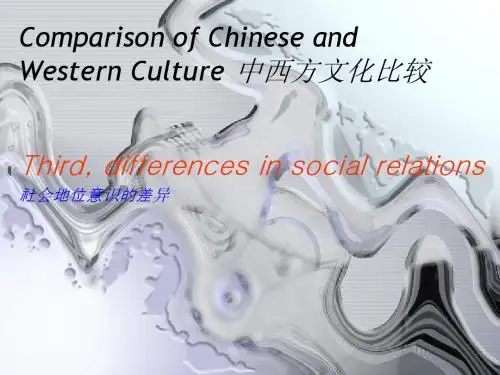
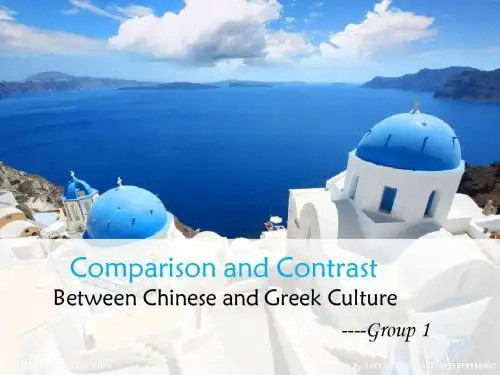
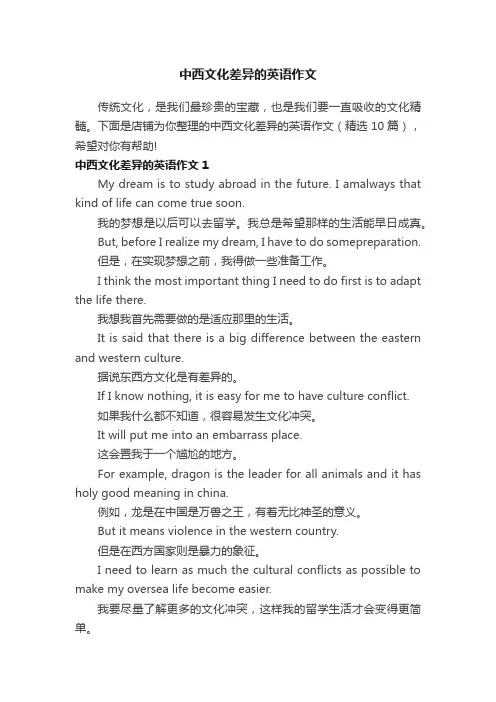
中西文化差异的英语作文传统文化,是我们最珍贵的宝藏,也是我们要一直吸收的文化精髓。
下面是店铺为你整理的中西文化差异的英语作文(精选10篇),希望对你有帮助!中西文化差异的英语作文1My dream is to study abroad in the future. I amalways that kind of life can come true soon.我的梦想是以后可以去留学。
我总是希望那样的生活能早日成真。
But, before I realize my dream, I have to do somepreparation.但是,在实现梦想之前,我得做一些准备工作。
I think the most important thing I need to do first is to adapt the life there.我想我首先需要做的是适应那里的生活。
It is said that there is a big difference between the eastern and western culture.据说东西方文化是有差异的。
If I know nothing, it is easy for me to have culture conflict.如果我什么都不知道,很容易发生文化冲突。
It will put me into an embarrass place.这会置我于一个尴尬的地方。
For example, dragon is the leader for all animals and it has holy good meaning in china.例如,龙是在中国是万兽之王,有着无比神圣的意义。
But it means violence in the western country.但是在西方国家则是暴力的象征。
I need to learn as much the cultural conflicts as possible to make my oversea life become easier.我要尽量了解更多的文化冲突,这样我的留学生活才会变得更简单。
英语作文,对比中西方文化{z}Title: A Comparison between Chinese and Western CulturesIntroduction:Culture is an integral part of any society, shaping the way people think, behave, and interact with each other.China and Western countries have distinct cultures, each with its unique characteristics, values, and traditions.This essay aims to compare and contrast the cultural differences between China and the West.Body:1.Family Values:In China, family values are paramount, emphasizing filial piety, respect for elders, and harmony within the family.The extended family structure is common, and decisions are often made collectively.In contrast, Western cultures prioritize individualism, independence, and personal freedom.Western families tend to be nuclear, with less emphasis on extended family relationships.cation:The education system in China is highly competitive and focused on academic achievement.Emphasis is placed on rote learning, respect for authority, and discipline.In Western countries, education is more student-centered, encouraging critical thinking, creativity, and self-expression.Western students are often encouraged to question authorityand explore various perspectives.munication Styles:Chinese communication is indirect and context-dependent.Non-verbal cues, such as facial expressions and body language, play a significant role.saving face and maintaining harmony are important.In contrast, Western communication is more direct and explicit.People in Western countries value transparency, honesty, and open dialogue.Directness is appreciated, and arguments are often resolved through open discussions.4.Social Etiquette:Social etiquette differs significantly between China and the West.In China, hierarchical relationships are important, and respect for elders is paramount.Greetings often involve bowing or nodding, and formalities are common.Western cultures emphasize equality and informality in social interactions.Handshakes and hugging are common forms of greeting, and casual dress is accepted in most settings.5.Food and Dining:Food is an essential part of both Chinese and Western cultures, but there are notable differences in dining customs.Chinese cuisine is diverse, with a focus on rice, noodles, and various meats and vegetables.Sharing dishes and using chopsticks are common practices.Western dining is more individualistic, with a focus on three meals a day and a variety ofdishes.Utensils are used, and portion control is emphasized.Conclusion:Culture plays a vital role in shaping societies and individuals.The comparison between Chinese and Western cultures highlights the diversity and richness of human experiences.While both cultures have their unique values, traditions, and practices, understanding and appreciating these differences can foster better cross-cultural communication, tolerance, and harmony.。
28孔子学院2053院长论坛DIRECTORS' FORUM西语国家与中国的文化差异比较——西语地区孔子学院院长论坛COMPARISON ON CUL TURAL DIFFERENCES BETWEEN SPANISH-SPEAKING COUNTRIES AND CHINA Directors’ Forum of Confucius Institutes in Spanish-Speaking Countries28 总第22期 2012年 9月 第5期DIRECTORS' FORUM本期主持人安文龙 西班牙瓦伦西亚大学孔子学院院长参与院长吕小端 阿根廷布宜诺斯艾利斯大学孔子学院中方院长Luís Antonio Paulino巴西圣保罗州立大学孔子学院院长Pablo Echavarría哥伦比亚麦德林孔子学院院长常世儒 西班牙巴塞罗那孔子学院中方院长Andreas G. Aluja Schunemann墨西哥尤卡坦自治大学孔子学院院长HOSTVicente Andreu Director, Confucius Institute at the University of Valencia, SpainCONFUCIUS INSTITUTE DIRECTORS PARTICIPATING IN THIS FORUMLv Xiaoduan Chinese Director, Confucius Institute at the University of Buenos Aires, ArgentinaLuís Antonio Paulino Director, Confucius Institute at University of Estadual Paulista, BrazilPablo Echavarría Director, Confucius Institute in Medellin, ColombiaChang Shiru Chinese director, Confucius Institute in Barcelona, SpainAndreas G. Aluja Schunemann Director, Confucius Institute at the AutonomousUniversity of Yucatan, Mexico29 VOLUME 20 NO.3 MAY. 2012Confucius Institute VOLUME 22 | NO.5 SEP. 2012地域相隔遥远,但文化上既陌生,又共通Far away geographically, strange yet universal culturally 每一种文化在交流和如何传达信息方面都有其独特之处。